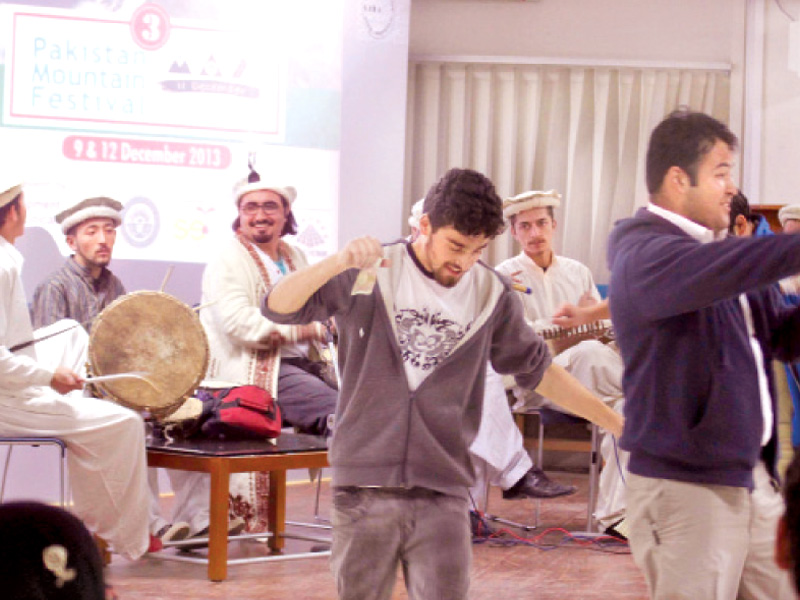
ISLAMABAD:
The mountain festival kicked off with cultural show and art competition and photo exhibition at the National University of Science and Technology (NUST) on Monday.
The three-day festival being organised in connection with International Mountain Day, falling on December 11, garnered an audience of students from different departments across the university, who also participated in various activities to learn about the unique culture and lifestyle of mountain communities in Gilgit-Baltistan and Chitral.
The event kick started with a painting competition in which a total of 42 students painted K2, the world’s second highest mountain with oil on canvas.
As this significant landmark is the only one popularly associated with the region, a session with the 75-year-old renowned mountaineer and first K2 climber, Ashraf Aman, was enlightening.
While sharing personal experiences with the students, his love for mountaineering became evident as his eyes glistened. “We must travel in order to learn,” he pointed out. “We have done our share of discovering and exploring, it is now the responsibility of the youth to carry forward, travel, explore and share”.

Ruminating over his past, he said “I started climbing mountains when it was not a famous trend; I even injured my foot with frostbite. There was no such thing as insurance, but we still managed to reach the highest tops with enthusiasm and courage as our gear”.
In light of bureaucratic negligence, he opined that universities should conduct regular seminars to educate students about cultural diversity in an area which is disconnected from the rest of the country.
The session was followed by a cultural performance by the troupe Sado-e-Pomir, which amplified manifold the energy and enthusiasm imparted upon the audience. As heady notes from the Rubab, Dadang, damal (percussions), flutes- surnai and tutek came together to produce mystical tunes of the Gilgit-Baltistan, the students were aroused into dance. Students who were native to the mountain region did not shy away from flaunting their indigenous moves.
This was taken a notch above when the musicians merged tunes from the north with the Punjabi folk song “Lathay di Chaadar”, managing to get the Punjabi students off their seats. The venue resounded with cheers and laughter from the audience as traditional dance forms was displayed.
For D.W. Baig, composer, the lead musician, and Rubab player who spruced up his jeans and T-shirt with a traditional coat and a “traditional Hunza topi”, this was a very successful performance ever since he started off 15 years ago.
Expressing his excitement, he said participation in such events helps represent and educate audience about Gilgit-Baltistan and Chitral. “People have a fallacious perception of the mountain region”, he said. “We have diverse communities, languages and ethnic groups, which the rest of the country needs to know about.”

Underscoring the need to aggressively promote tourism in mountain regions, Raffaele Del Cima, Country Operation Manager and SEED-Social Economic Environmental Development Project Director said that work with community institutions of Gilgit-Baltistan and Pakistan Association of Tour Operators needs to be pursued. Due to unfortunate events and negative publicity over the past six years, thousands of families making earnings due to tourism are now striving to survive.
“The north has great potential to grow as a green economy but capacity infrastructure and logistics pose a challenge”.
The Festival Director and Director Development Communications Network, Munir Ahmed, stated the objectives of the festival and asserted that the concerned partners need to collate to speak conclusively on the issues and challenges of mountains in the context of climate change.

While speaking with the students post-festival, Sumera Mumtaz, a student at NUST who hails from Hunza, said that students need to know about their culture, its diversity and richness. “There is only so much I can explain with my stories”, she cheerfully explains, “it’s a good opportunity for them to see and learn for themselves”.
Another student, Gari-Gushpur, took this opportunity to exhibit his dancing skills to his peers. “Most of my friends did not know I could dance like this” he said laughingly.
Aslan Haider, another native of G-B, said “My culture is so different. Although they got a gist of what it is all about, I wish my friends from other parts of the country who enjoyed this morning will travel and see more.” Zainab, a student, felt that “Although a lot of people could not relate to the language, they still enjoyed”.
This year’s theme, “Mountains: Key to sustainable future” will focus on celebrating how mountains are crucial in taking the world towards sustainable economic growth in the context of poverty eradication, drawing attention to their generally sustainable and low-emission production models.
Published in The Express Tribune, December 10th, 2013.














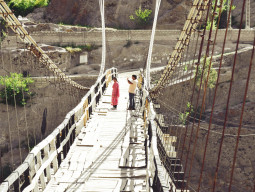
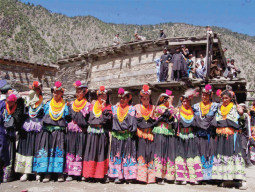
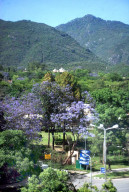

1713272658-0/Copenhagen-fire-(1)1713272658-0-270x192.webp)


1713268762-0/Netflix-(3)1713268762-0-270x192.webp)
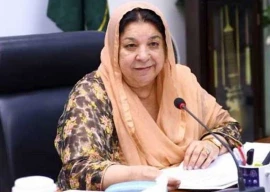














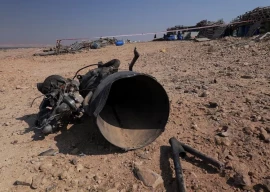






COMMENTS
Comments are moderated and generally will be posted if they are on-topic and not abusive.
For more information, please see our Comments FAQ